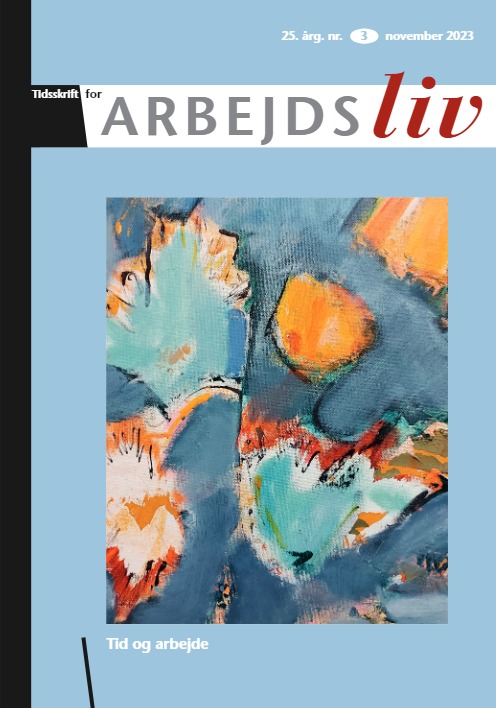When acceleration shapes work time
Keywords:
Acceleration, Temporalitet, Arbejdstid, Hartmut RosaAbstract
In recent years, the work of the German social theorist Hartmut Rosa (1965-) has been highlighted as a key candidate for an overall diagnosis of modern society. Through the development of concepts such as social acceleration, Rosa has set the agenda for popular discussions concerning the late modern individual’s relationship to time as a scarce resource. However, despite the popularity of this societal diagnosis and its connection to modern working life, Rosa’s theory has not been translated to any significant extent into more concrete studies of time in contemporary organization studies. In this paper, we therefore identify and discuss how Hartmut Rosa’s theoretical framework can inform concrete analyses of time pressure, synchronization, and the influence of digital technologies in contemporary organizations. This largely theoretical discussion is supported by empirical examples from two different qualitative studies of the private pharmaceutical industry and the public health care system, where time has been reshaped and accelerated in different ways. More specifically, we highlight how Rosa’s concepts can help us study (a) the synchronization of work tasks, (b) the impact of digital technologies on employees’ time budgets, and (c) forms of involuntary and voluntary deceleration in organizations.
Downloads
Published
How to Cite
Issue
Section
License
Copyright (c) 2023 Forfatteren og tidsskriftet i samarbejde

This work is licensed under a Creative Commons Attribution-NonCommercial 4.0 International License.
Forfattere, der publicerer deres værker via dette tidsskrift, accepterer følgende vilkår:
- Forfattere bevarer deres ophavsret og giver tidsskriftet ret til første publicering, samtidigt med at værket ét år efter publiceringen er omfattet af en Creative Commons Attribution-licens, der giver andre ret til at dele værket med en anerkendelse af værkets forfatter og første publicering i nærværende tidsskrift.
- Forfattere kan indgå flere separate kontraktlige aftaler om ikke-eksklusiv distribution af tidsskriftets publicerede version af værket (f.eks. sende det til et institutionslager eller udgive det i en bog), med en anerkendelse af værkets første publicering i nærværende tidsskrift.
- Forfattere har ret til og opfordres til at publicere deres værker online (f.eks. i institutionslagre eller på deres websted) forud for og under manuskriptprocessen, da dette kan føre til produktive udvekslinger, samt tidligere og større citater fra publicerede værker (se The Effect of Open Access).





